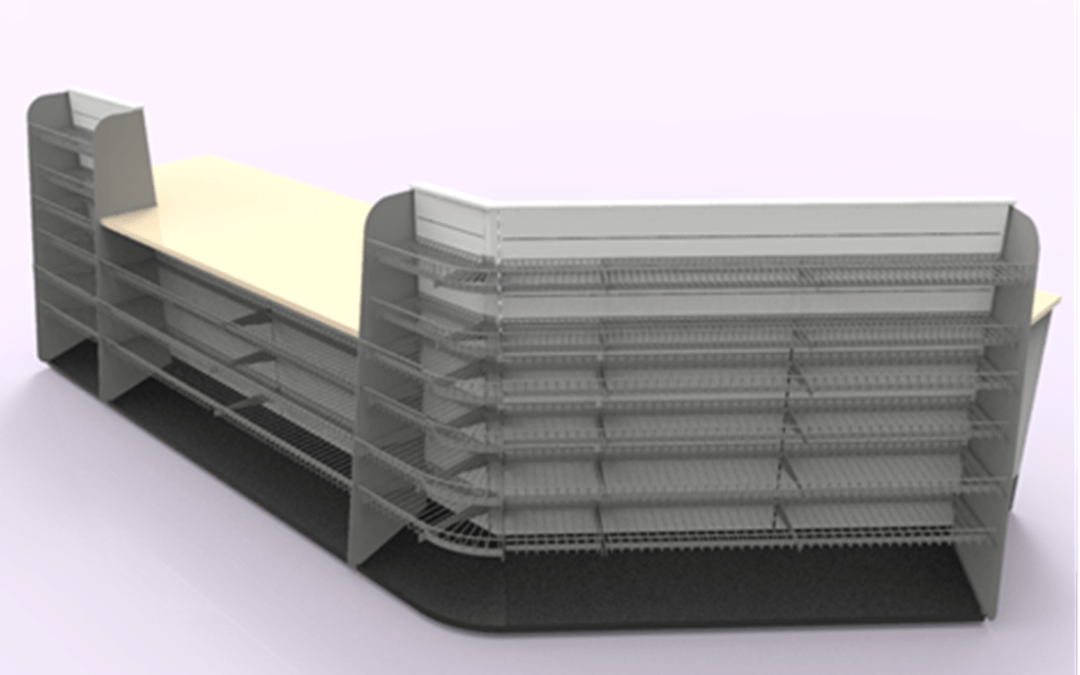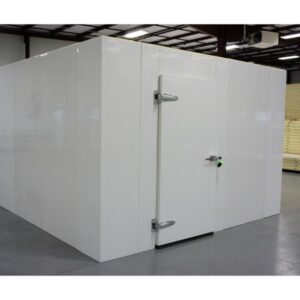Ensuring food safety is the backbone of any food service operation. From bustling restaurants to large-scale food distributors, compliance with food safety regulations isn’t merely a legal obligation but an ethical commitment to public health. For restaurant owners, food distributors, and even health inspectors, one indispensable asset in this endeavor is the commercial walk-in cooler.
A walk-in cooler is far more than a refrigerated storage space. It is a critical piece of equipment meticulously designed to uphold food compliance standards by maintaining optimal conditions necessary to ensure the integrity and safety of perishable goods. But what makes it so vital? What role does it play in ensuring food compliance? This blog will explore the key ways commercial walk-in coolers meet food compliance standards and why they are an essential investment for food-related businesses.
The Role of Temperature Control in Food Compliance
One of the main regulatory standards governing food safety involves temperature control. Both the U.S. Food and Drug Administration (FDA) and the U.S. Department of Agriculture (USDA) require perishable foods to be kept at specific temperatures to prevent bacterial growth.
- Refrigerated Foods should be stored at 40°F (4°C) or below.
- Frozen Foods must be maintained at 0°F (-17.8°C) or below.
The reason is clear—microbes such as Salmonella, Listeria, and Escherichia coli (E. coli) grow rapidly in temperature ranges known as the “danger zone” (between 40°F and 140°F). Failing to adhere to these limits can lead to foodborne illnesses, which not only endanger public health but also expose businesses to financial risks and reputational damage.
Commercial walk-in coolers are built to maintain consistent, precise temperatures that meet these regulatory standards. Equipped with advanced cooling systems, insulation, and digital temperature monitoring, they are able to regulate internal climates with exceptional accuracy. This high level of performance ensures perishable items remain safe for consumption, fostering trust among health inspectors and compliance authorities.
Reducing Bacterial Growth with Advanced Cooling Systems
The design of commercial walk-in coolers directly addresses the primary goal of minimizing bacterial growth. Their advanced cooling systems distribute cold air uniformly, eliminating hot spots that could compromise stored products. Built with durable insulation materials, these coolers reduce temperature fluctuations caused by external changes, such as when the doors are opened frequently.
Modern walk-in coolers often feature smart cooling technologies that include:
- Programmable Thermostats: Allowing operators to set and monitor precise temperatures.
- Humidity Controls: Preventing condensation that could lead to mold or food spoilage.
- Air Circulation Systems: Ensuring uniform cooling across all sections, whether it’s the top shelf or the bottom rack.
By incorporating these features, walk-in coolers act as a shield against conditions conducive to microbial growth.
Meeting Health Inspection Requirements
Health inspections are an integral part of maintaining food safety compliance. For restaurant owners, failing these routine checks can result in fines, forced shutdowns, or—in the worst cases—suspension of licenses. Commercial walk-in coolers are specifically designed to help establishments meet and surpass inspection criteria.
A typical health inspection involves verifying the following:
- Temperature Documentation: Health inspectors often request evidence that perishable items are consistently stored at FDA-compliant temperatures.
- Cleanliness: Coolers must be easily cleanable and free from mold or contamination.
- Calibration Accuracy: Thermometers and temperature control systems should undergo regular calibration checks.
- Proper Placement of Food: Raw and cooked items must be stored separately to prevent cross-contamination.
Walk-in coolers simplify these tasks by offering built-in features like automatic temperature tracking, easy-to-clean surfaces, and modular shelving for proper food segregation. These attributes ensure that when the health inspector comes knocking, your establishment can confidently meet or exceed expectations.
Elevating Brand Reputation Through Compliance
While maintaining compliance is primarily about safety, it also brings significant reputational benefits. Customers are becoming increasingly aware of food safety practices, and establishments that consistently prioritize compliance earn respect and loyalty.
Imagine a scenario in which a restaurant proudly illustrates its rigorous food safety measures, showcasing a state-of-the-art walk-in cooler as part of their operations. This transparency builds consumer trust, distinguishing the business from competitors.
Furthermore, investing in compliance-enhancing equipment like a walk-in cooler signals to health inspectors that the establishment takes food safety seriously. It also supports the long-term sustainability of the business by minimizing risks linked to legal penalties and product recalls.
Key Features of Compliance-Driven Walk-In Coolers
To fully understand why commercial walk-in coolers are indispensable, let’s explore the features that make them compliance powerhouses:
- Temperature Alarms: Many models are equipped with alarms that notify staff of temperature deviations, enabling immediate action.
- Energy Efficiency: Beyond compliance, modern walk-in coolers are designed with eco-friendly technologies that reduce power consumption while maintaining cooling standards. This ensures regulatory alignment with environmental standards as well.
- Pest-Resistant Construction: Tight seals and robust construction prevent pests from infiltrating storage areas, a common compliance requirement.
- Traceability Tools: Digital thermometers and data loggers allow businesses to track temperature histories, which can be invaluable during inspections.
These features not only ensure that food safety standards are upheld but also streamline operational efficiency.
A Conscientious Investment in Consumer Health
Ultimately, investing in a commercial walk-in cooler represents more than a business expense—it’s a commitment to consumer health and the integrity of the food service industry. Whether you’re running an independent neighborhood bistro or managing a large-scale food distribution network, maintaining compliance allows you to serve your customers with confidence and care.
Beyond regulatory requirements, walk-in coolers exemplify the proactive steps businesses take to safeguard public health. By ensuring that perishable items are stored properly—free from risks like contamination or microbial growth—businesses demonstrate the highest level of professional and ethical responsibility.
Final Thoughts
Compliance with food safety standards is non-negotiable for businesses in the food industry. Commercial walk-in coolers serve as an essential ally in this mission, offering precise temperature control, advanced cooling technologies, and features tailored to meet regulatory requirements. By investing in a high-quality walk-in cooler, businesses not only meet compliance obligations but also protect their reputation and the health of their customers.
If you’re a restaurant owner, food distributor, or health inspector searching for reliable equipment to ensure food compliance, consider upgrading to a commercial walk-in cooler today. Your customers—and your peace of mind—will thank you.


